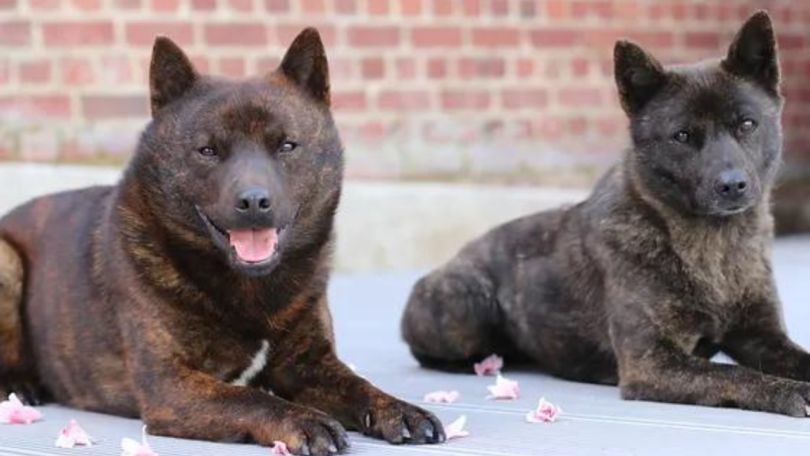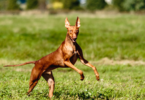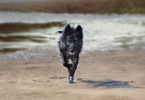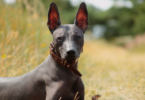The Kai Ken, also known as the Tora Inu or “Tiger Dog,” is a rare and ancient Japanese breed that has captivated dog enthusiasts worldwide with its striking appearance and loyal temperament. In this comprehensive guide, we'll delve deep into the world of the Kai Ken, exploring its rich history, unique characteristics, and what it takes to care for this remarkable breed. Whether you're a potential owner or simply fascinated by rare dog breeds, this ultimate guide will provide you with everything you need to know about Japan's national treasure.
1. The Fascinating History of the Kai Ken
Ancient Origins and Cultural Significance
The Kai Ken's history is as intriguing as the breed itself, with roots tracing back to Japan's mountainous regions.
Historical Highlights
- Origin: Native to the Kai Province (now Yamanashi Prefecture) of Japan.
- Ancient Lineage: One of the six native Japanese dog breeds recognized by the Nihon Ken Hozonkai (NIPPO).
- Traditional Use: Prized for hunting boar and deer in rugged mountain terrain.
Fascinating Fact: The Kai Ken was designated as a “Natural Monument” of Japan in 1934, highlighting its cultural and historical importance.
2. Physical Characteristics of the Kai Ken
A Striking and Unique Appearance
The Kai Ken's distinctive look sets it apart from other breeds, making it instantly recognizable to dog enthusiasts.
Key Physical Traits
- Size: Medium-sized, with males standing 18-22 inches and females 17-20 inches at the shoulder.
- Weight: Typically between 25-55 pounds.
- Coat: Dense double coat with a unique brindle pattern, often called “tora-ge” or tiger-stripe.
- Colors: Brindle in black, red, or brindle.
Unique Feature: The Kai Ken's brindle coat provides excellent camouflage in forested areas, a trait that served it well in its hunting past.
3. Temperament and Personality
Loyal, Intelligent, and Alert
The Kai Ken's temperament reflects its heritage as both a hunting companion and family protector.
Key Personality Traits
- Loyalty: Forms strong bonds with family members and is deeply devoted.
- Intelligence: Highly trainable and quick to learn new commands and tasks.
- Alertness: Natural watchdog tendencies make it an excellent guardian.
- Independence: Can be somewhat aloof with strangers, reflecting its primitive breed status.
Important Note: Early socialization is crucial to ensure the Kai Ken develops into a well-rounded adult dog.
4. Training and Exercise Needs
Engaging the Kai Ken's Body and Mind
The Kai Ken's intelligence and energy levels demand proper training and ample exercise.
Training Approach
- Positive Reinforcement: Responds best to reward-based training methods.
- Consistency: Requires firm but gentle guidance from an early age.
- Mental Stimulation: Thrives on problem-solving tasks and complex training exercises.
Exercise Requirements
- Daily Activity: At least 60-90 minutes of vigorous exercise per day.
- Varied Activities: Enjoys hiking, swimming, and agility training.
Pro Tip: Incorporating scent work into training sessions can tap into the Kai Ken's natural hunting instincts and provide excellent mental stimulation.
5. Health Considerations
A Generally Healthy Breed
While Kai Kens are generally robust, they can be prone to certain health issues.
Common Health Concerns
- Hip Dysplasia: A genetic condition affecting the hip joints.
- Eye Problems: Including progressive retinal atrophy (PRA) and cataracts.
- Allergies: Some Kai Kens may develop skin allergies.
Lifespan
- Average Lifespan: 12-15 years with proper care and nutrition.
Health Tip: Regular veterinary check-ups and genetic testing for breeding dogs can help maintain the breed's overall health.
6. Grooming and Care
Maintaining the Kai Ken's Beautiful Coat
The Kai Ken's double coat requires regular maintenance to keep it healthy and beautiful.
Grooming Routine
- Brushing: 2-3 times per week, more frequently during shedding seasons.
- Bathing: As needed, typically every 6-8 weeks.
- Nail Trimming: Regular nail trims to prevent overgrowth and discomfort.
- Ear Cleaning: Check and clean ears weekly to prevent infections.
Grooming Tip: The Kai Ken's coat is naturally dirt-resistant, making it relatively easy to maintain despite its thickness.
7. The Kai Ken as a Family Dog
A Loyal and Protective Companion
Kai Kens can make excellent family pets for the right households.
Family Compatibility
- Children: Generally good with children when properly socialized, but supervision is recommended.
- Other Pets: Can coexist with other dogs and pets if introduced properly, but may have a high prey drive.
- Space Requirements: Adaptable to various living situations but thrives in homes with secure outdoor spaces.
Important Consideration: The Kai Ken's strong hunting instincts mean it may not be suitable for homes with small pets like cats or rabbits.
8. Kai Ken in Modern Roles
Versatility Beyond Hunting
While traditionally used for hunting, Kai Kens have adapted to various roles in modern society.
Modern Roles
- Companion Animal: Increasingly popular as a unique and loyal family pet.
- Search and Rescue: Their agility and scenting abilities make them suitable for search and rescue work.
- Therapy Work: Some Kai Kens have shown aptitude for therapy dog roles.
- Competitive Dog Sports: Excels in agility, obedience, and scent work competitions.
Interesting Fact: In Japan, some Kai Kens are still used for their traditional hunting purposes, showcasing the breed's versatility.
9. Nutrition and Feeding
Fueling the Kai Ken's Active Lifestyle
Proper nutrition is crucial for maintaining the Kai Ken's health and energy levels.
Dietary Needs
- High-Quality Protein: Essential for maintaining muscle mass and energy.
- Balanced Diet: Should include appropriate levels of fats, carbohydrates, vitamins, and minerals.
- Portion Control: Careful monitoring of food intake to prevent obesity.
Feeding Tip: Consider feeding a diet formulated for active breeds to meet the Kai Ken's energy requirements.
10. Choosing a Kai Ken Puppy
Finding Your Perfect Companion
Selecting a Kai Ken puppy requires careful consideration and research.
Selection Tips
- Reputable Breeders: Choose breeders who prioritize health and temperament in their breeding programs.
- Health Clearances: Ensure puppies and parents have appropriate health certifications.
- Temperament Testing: Observe puppy behavior to find a match for your lifestyle.
- Socialization: Look for breeders who start early socialization with their puppies.
Important Note: Due to their rarity, be prepared for a potentially long wait and higher costs compared to more common breeds.
11. The Kai Ken in Japanese Culture
A Living National Treasure
The Kai Ken holds a special place in Japanese culture and history.
Cultural Significance
- Folklore: Featured in local legends and stories from the Kai Province.
- Art: Depicted in traditional Japanese art and modern media.
- Conservation Efforts: Subject of preservation efforts to maintain the breed's purity and cultural importance.
Interesting Trend: The Kai Ken's popularity is growing outside Japan, leading to increased efforts to preserve its traditional characteristics.
12. Kai Ken Rescue and Adoption
Giving a Home to a Rare Breed
While less common than other breeds, Kai Ken rescue and adoption opportunities do exist.
Adoption Considerations
- Rarity: Due to the breed's scarcity, rescue Kai Kens are not frequently available.
- Background Check: Rescue organizations often conduct thorough checks to ensure good matches between dogs and adopters.
- Support Network: Many breed-specific rescue groups offer ongoing support and advice for adopters.
Adoption Tip: Be prepared to demonstrate knowledge of the breed and provide a suitable home environment when applying to adopt a Kai Ken. By exploring these various aspects of the Kai Ken breed, we gain a deeper appreciation for these remarkable dogs.
From their rich history as Japanese hunting companions to their modern roles as loyal family pets and working dogs, Kai Kens continue to impress with their intelligence, loyalty, and adaptability. For those considering adding a Kai Ken to their family, it's essential to understand the breed's needs for exercise, training, and socialization.
While they can be wonderful companions for the right owners, Kai Kens require dedication and commitment to reach their full potential. As interest in this rare and fascinating breed continues to grow, it's crucial to promote responsible ownership and breeding practices to ensure the Kai Ken's health, temperament, and cultural significance are preserved for future generations.
Whether as a family pet, a working partner, or a living link to Japan's rich canine heritage, the Kai Ken stands out as a truly exceptional breed with much to offer to those who are prepared to meet its needs.











Leave a Comment